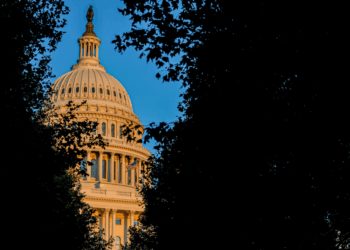Most people know Jane Goodall, the eminent primatologist who died on Wednesday at 91, for her singular, field-defining work on wild chimpanzees. She first entered the field in the early 1960s with no formal academic training, at a time when influential scientific frameworks like behaviorism often viewed animals as little more than stimulus-response machines. Unencumbered by scientific orthodoxy, Goodall helped the world see chimps as socially and cognitively sophisticated creatures. Her work opened up space for scientists to understand animals as beings with interiority (although even today, that approach is far from universally accepted).
But Goodall also devoted herself to something even more radical, and far rarer for scientists of her international stature. Goodall’s recognition of animals’ capacities was not just an abstract academic finding but a practical ethic and moral imperative that led her to advocate for veganism, meat reduction, and animal rights. She despaired at the horrors of factory farming, calling it “amongst the worst atrocities ever perpetrated by humanity,” and she vocally opposed invasive animal experimentation, particularly on primates — a commitment that sometimes put her at odds with fellow scientists who believe that experimenting on animals remains essential to scientific discovery.
“It is nothing but living hell,” Goodall wrote in 2019, describing the conditions she saw in video footage of an animal testing lab in Germany. Speaking about her experience at a conference on xenotransplantation, or implanting animal organs into humans, she told the New Yorker in a 2022 story, “They were all talking happily about breeding pigs for xenotransplant, dogs, and so on. I felt like an alien in a world full of people with no empathy.”
Goodall had long advocated to end biomedical testing on chimps, a goal that was finally achieved in the US a decade ago, lent her voice to campaigns by animal rights groups like PETA to draw attention to the extreme suffering of animals in research labs, and helped appeal to federal regulators to end such experiments. She also sat on the board of the Nonhuman Rights Project, a nonprofit that seeks to secure legal personhood for animals, so that they’re extended legal rights like freedom from captivity and exploitation.
It’s hard to overstate just how transgressive, even heretical, these ideas are within the mainstream scientific community. Like any in-group, researchers have taboos against aligning with those they perceive as threats to their autonomy — and animal rights advocates who question scientists’ prerogative to use animals as they see fit are among the most potent such threats. The wildlife conservation community, too, of which Goodall was a part, focuses on protecting animals on a species level, but has little to say about the welfare of individual animals.
Goodall, who broke barriers everywhere she went, seemed to have little use for such arbitrary, ethically dubious boundaries, which made her widely beloved within the animal rights movement. She was among the few preeminent scientists willing to use her status to speak plainly about animal exploitation, even calling for colleagues to reevaluate not just the ethics of animal experimentation, but also its scientific value: “More and more scientists today are concluding that experiments on animals are contributing nothing toward cures for disease in humans,” she said.
Goodall achieved such fame that she could afford to break with convention without risking professional marginalization. Even so, it would have been easier for her to avoid pushing against received norms. But she was willing to see the implications of her own work on animal intelligence through to its only logical conclusion: that humanity’s pervasive tyranny over nonanimals lacks any serious moral basis. Her radical empathy pushes us to ask more of our institutions, and of ourselves.
The post Jane Goodall’s most radical message was not about saving the planet appeared first on Vox.




